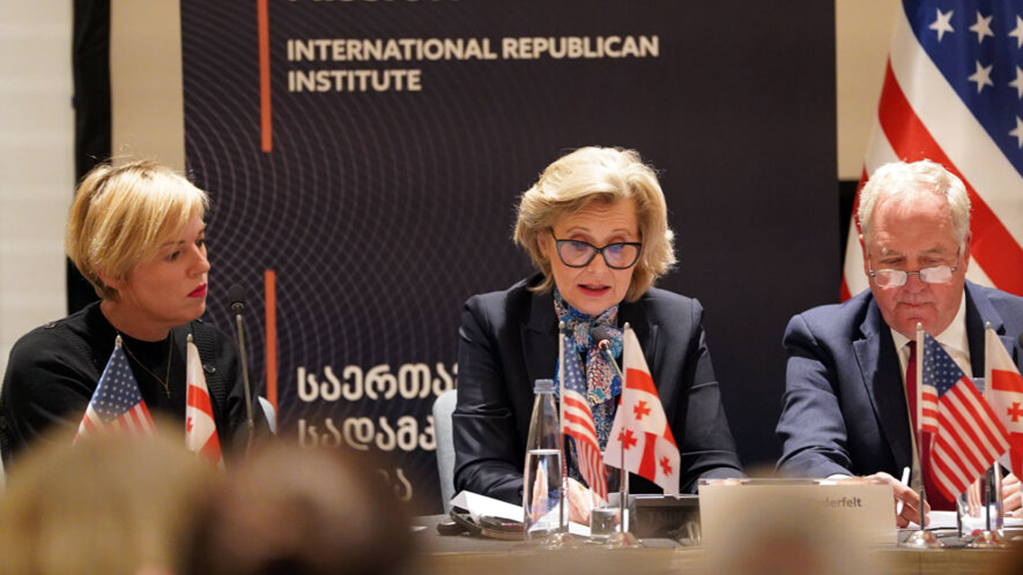The international observation mission of the National Democratic Institute (NDI) regarding the October 26 parliamentary elections in Georgia states that the pre-election environment did not meet the fundamental standards of democratic elections. It was marred by incidents of threats, harassment, and violence affecting voters, activists, political actors, and their families.
News
“Georgia’s 2024 parliamentary elections saw greater turnout than the last two elections demonstrating Georgian citizens’ commitment to the democratic process. These elections were conducted under a fully proportional system for the first time. In addition, numerous changes to the election code, and use of new technologies, resulted in significant changes to the conduct of the election.
Polling stations were generally calm and organized. However, citizen observers reported a significant increase in serious violations from the previous elections including violence, voter intimidation and instances of ballot stuffing.
It is clear that the pre-election period failed to meet fundamental standards for democratic elections. The government’s passage of legislation that labels civic actors as foreign agents and its campaign to intimidate those that criticized ruling party policies generated a climate of fear.
State-sponsored efforts to discredit and legally restrict election observers forced them to divert resources to self-defense from their central activities to safeguard the elections. The legislation also had a chilling effect on advocates, civic educators and other groups contributing to the political discourse.
Ruling party leaders also threatened to criminalize opposition political parties. Legislation passed by the government restricted the rights of and stigmatized vulnerable LGBTQI+ communities in contravention to regional and international human rights standards to which Georgia is obliged.
Taken together, the government’s actions caused the European Union to halt Georgia’s accession path.
A fragmented, politicized media environment limited voters’ access to impartial information. The ruling party had disproportionate influence on this environment given its control over state media as well as privately held channels. That said, both ruling party and opposition channels refused to broadcast opposing political ads. Meanwhile few electoral contestants participated in broadcasted debates. Attacks on and intimidation of independent media further constrained public access to balanced discourse and coverage of key issues in the campaign.
The pre-election period was also compromised by widespread threats, harassment, and in some cases violence, affecting voters, activists, and political actors, and their families. Women were disproportionately subjected to incessant and gendered attacks.
Nonpartisan citizen observers as well as political parties and the media noted multiple instances of voter intimidation affecting Georgian citizens employed by the public sector in an apparent effort to deter participation or compel voting for the ruling party.
Throughout election day, reports from citizen observers provided valuable information to support our observation findings. On election day, citizen observers witnessed widespread violations of the neutrality zone around polling stations by gatherings of ruling party figures and unauthorized persons. Our short-term observers and citizen observers also reported intimidation of voters.
Citizen observers also reported an increase in critical incidents, including violence against observers, voters and party representatives,” the monitoring mission said.
NDI emphasizes that this announcement is preliminary, as the post-election environment is still evolving, particularly in terms of counting final votes, handling complaints, and resolving disputes. Additionally, during the redistribution of mandates in parliament, NDI calls on all political actors in Georgia to respect the will of the people as expressed in the voting and to exercise patience and restraint when summarizing the final results.
NDI also urges institutions to investigate allegations of electoral irregularities, prosecute criminal acts, and resolve disputes in accordance with the law.
"The Georgian people have clearly expressed the value they place on their democratic path. Georgian political actors must move beyond their winner-take-all mentality and commit to pluralism in order to advance this path. The governing party, in particular, must ensure that it maintains state neutrality and protects the ability for all Georgians to participate freely and equally in political life," states NDI.
Among the monitoring mission's recommendations is that parliament repeal the Russian Law on Foreign Agents to eliminate its destructive effect on independent civil society organizations and the media.
The National Democratic Institute has been observing elections in Georgia since 1992.















